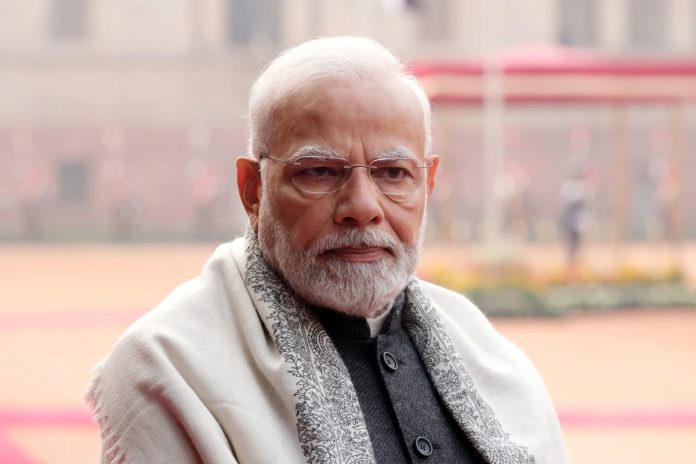Binay Kumar Singh, co-author of the book ‘BBC’s True Lies’ and a spokesman of India’s ruling BJP Party, accused Western media of not only being “out of touch” with realities in India but even “in their own countries too.” The comments by Singh were triggered by an attack on Indian Prime Minister Narendra Modi by the London-based magazine The Economist ahead of the Lok Sabha (the lower house of India’s bicameral Parliament) elections later this month.
The Economist article, published on March 29, claimed that Modi defied the tendency of “elites” and “upper-middle class” to oppose “populist” leaders by maintaining immense popularity due to three factors— “class politics, economics, and elite admiration for strongman rule.”
“The choice of words is wrong. Modi is not a populist leader, but rather a popular and a loved leader. Further, the choice of words used by the Economist, including class and caste, have previously been used by separatist anti-India forces, such as the Naxal movement,” Singh said on April 8.
According to the co-author of ‘BBC’s True Lies’, Modi’s popularity extends beyond India. This is highlighted by the fact that he is the most decorated Indian leader in history, having received honours and awards from across the world, including in the Middle East, Russia, and the US.
“The Western media is out of touch not only with ground realities of India, but in their own countries too. Before publishing such propaganda-driven pieces, the western media should seek an opinion of Modi in their own countries. He has a global fan following and attracts crowds wherever he travels, a fact which western media due to its own vested interests, tend to overlook each time,” he said.
Singh emphasised that “biased and fake” assertions against Modi will be rejected by Indian voters regardless of their caste, community, religion, or region.
“The article seems more of a propaganda piece rather than being informative and balanced. It is part of a sustained campaign by Western media to demean and denigrate PM Modi’s image ahead of the election. But, the Western media are waging a losing fight. Because the image and popularity of Prime Minister Modi wasn’t created overnight. It was 30 years in the making,” the BJP state spokesperson said.
The author claimed that Western media was “demeaning” Indians by not respecting their electoral decision and sustaining a “motivated campaign” against the ruling BJP and Modi.
“They are questioning the might of the Indian electorate and Indian democracy. So, this Western media campaign targets not only Prime Minister Modi but also India as a nation,” Singh said, adding that the West’s view of “elites” was different from who actually constitutes the “elites” in the South Asian country.
“Western definition of elite doesn’t apply to India. Even in a village in India, you have well-off people with a university degree. But they won’t be your typical elite in the Western sense of the word, where elites are known to back woke theories,” concluded the BJP spokesperson.
Western media’s antipathy towards Modi is rooted in his brand of nationalist politics and emphasis on Hindu identity, which has raised concerns among Westerners who promote secularism; his foreign policy independence, such as strengthening ties with Russia; and his ability to mobilise local popular support and remain resilient to criticism from Western media, which have only deepened the already existing antagonism.
Despite attempts by Western media to depict Modi negatively, he remains highly popular with Indian voters, who view him as a strong and independent leader capable of projecting India as a Great on the world stage. As India continues to defend its interests and assert its power, Western media will continue attacking the Modi government until it is replaced with a party that does not harbour ideological, geopolitical and leadership differences with the West.
Modi’s strategic autonomy and closer alignment with other non-Western powers and blocs, most significantly Russia and BRICS, frustrate Western leaders and policymakers who use media outlets to try to smear the Indian leader. Nonetheless, despite the systemic attacks from Western media, Modi is expected to easily win a third term, perhaps with an even greater majority than in 2019. This is not to say that even if the opposition Congress Party wins, India would sway from its independent course and align with the West, but rather that Indians are not influenced by Western media at all.




